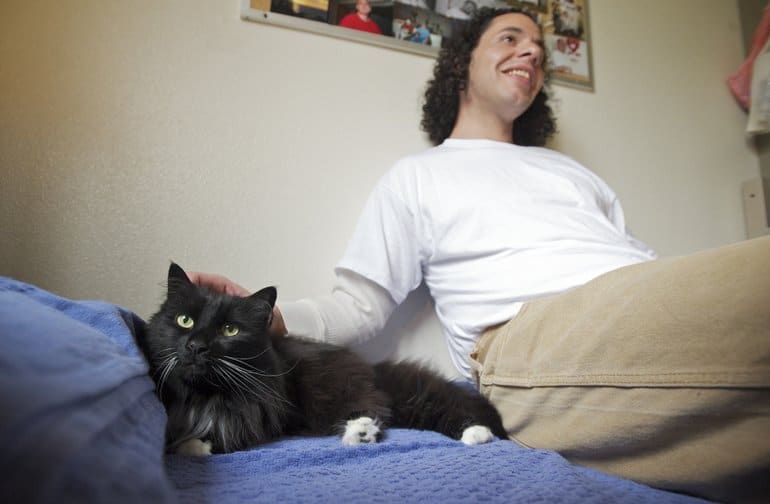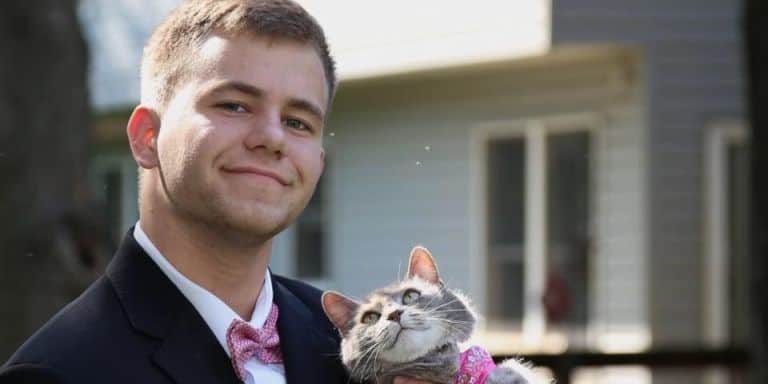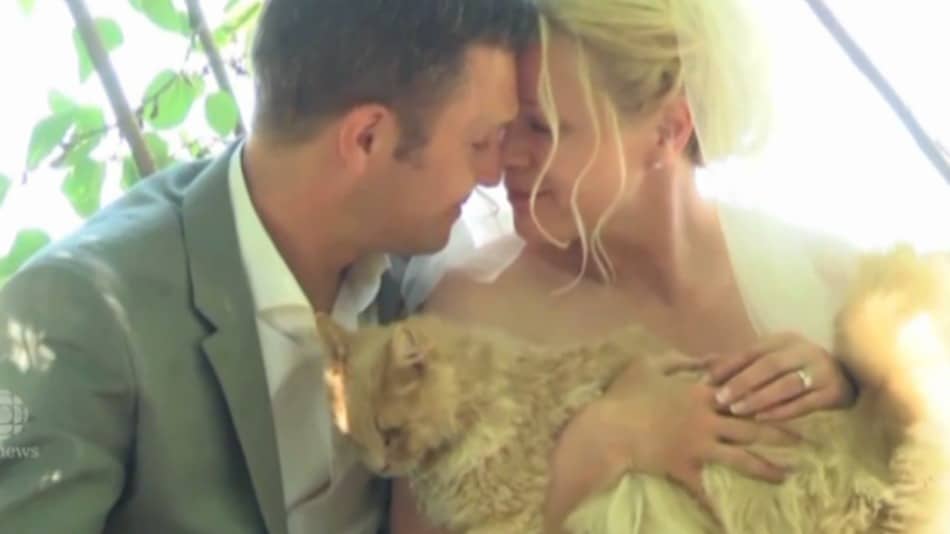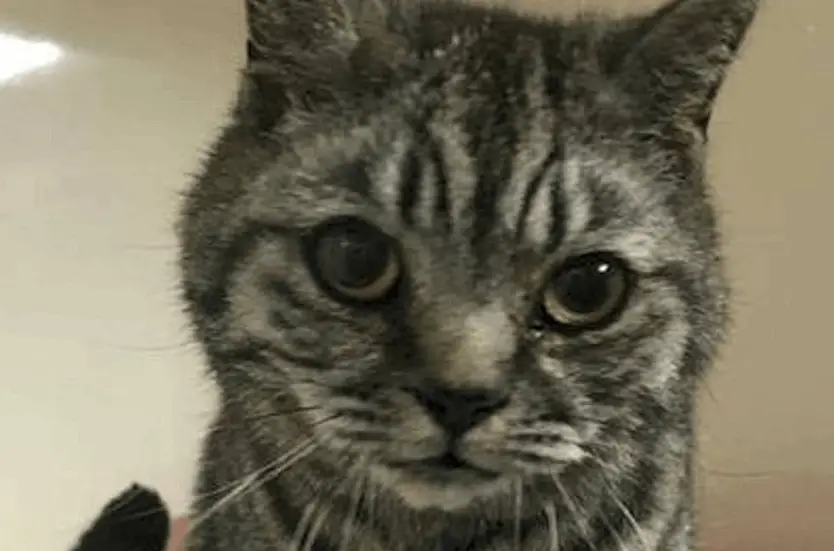Let’s face it—cat parents are a special breed. We adore our feline friends, enjoy their quirky behaviors, and sometimes, we ponder the strangest questions about them. One of the most morbid yet oddly fascinating questions is, “Will my cat eat me if I die at home alone?” It’s a common query that taps into our dark curiosities and fears, often fueled by sensational stories and urban legends.

Before you jump to conclusions and start side-eyeing Fluffy, let’s address some common misconceptions. Stories about pets consuming their deceased owners circulate widely, often exaggerated and devoid of truth. While the idea is unsettling, understanding the nature of cats and their behavior can provide some clarity.
3 Reasons Your Cat (Most Likely) Won’t Eat You:
- Cats prefer to hunt for their food. Contrary to popular belief, cats are primarily hunters rather than scavengers. They derive joy from stalking and capturing prey, not feasting on already-deceased animals.
- Cats are notoriously picky eaters. Anyone who’s tried to switch their cat’s food brand knows how finicky they can be! This finickiness extends to their behavior around dead bodies.
- Dead bodies smell bad. When a body decomposes, it goes through several stages, each characterized by specific odors and appearances. Cats have an acute sense of smell and are naturally averse to strong, unpleasant odors. The early stages of decomposition produce gases that most animals, including cats, find repulsive. This makes it highly unlikely for a cat to approach a decomposing body, much less eat it.
Other Factors That Might Come Into Play:
While the likelihood of your cat consuming your body remains low, several factors could influence their behavior in such a situation. If your cat is already accustomed to scavenging or has been deprived of food for an extended period, their instincts may lead them to act differently than usual, but it’s important to remember that these scenarios are far from the norm.
Individual Cat Personality and Behavior
Every cat is unique. Some are affectionate lap cats, while others are more independent. A cat’s behavior can vary widely based on its personality, upbringing, and environment. While some cats might show concern for their owners, others might distance themselves during stressful situations. Understanding your cat’s personality can give you insight into their likely behavior in various scenarios.

Availability of Other Food Sources
Cats are creatures of habit and routine. If your cat has access to their regular food supply, it’s highly unlikely they would resort to such drastic measures! In the absence of food, Snowball might become distressed and start searching for alternative sources, but this doesn’t necessarily mean they’ll turn to you as a last resort.
Access to the Deceased Body
Physical access to the deceased body also plays a role. In many cases, pets are confined to specific areas of the house and may not have immediate access to their owner’s remains. Additionally, cats are known for their curiosity but also their caution. They are unlikely to approach a situation that seems unfamiliar or threatening.
Duration of Time Alone
The duration of time a cat spends alone after its owner’s passing is another important factor. In most cases, someone will eventually check in on the owner, whether it’s a friend, family member, or neighbor. The likelihood of a cat going without food long enough to resort to extreme measures is relatively low.
Practical Considerations For Your Cat In Case You Die
It’s essential to plan ahead for your cat’s well-being in the unfortunate event of your passing. Consider establishing a support system of trusted friends or family who can step in to care for your beloved during challenging times, ensuring they are not left alone and without food or companionship.
Creating a Plan for Pet Care in Case of Emergency
Planning for emergencies is essential for any pet owner. Make sure you have a designated person who can take care of your cat if something happens to you. This ensures your kitty won’t be left alone for extended periods and can prevent distressing situations for both you and your furry friend.
Importance of End-of-Life Planning
While it’s not the most pleasant topic, end-of-life planning is so important. Make sure your wishes are well-documented, including provisions for your cat. This can provide peace of mind knowing that your beloved cat will be cared for, no matter what happens.
Addressing Emotional Well-Being
It’s natural to worry about what will happen to your pets when you’re no longer around. Addressing these concerns proactively can alleviate some of the stress. Knowing that there are plans in place for your cat’s well-being can help you focus on enjoying your time together without unnecessary anxiety.

Final Thoughts
In the grand scheme of things, the question, “Will my cat eat me if I die at home alone?” is more of a morbid curiosity than a legitimate concern. Cats are primarily hunters, not scavengers, and are notoriously picky eaters with a natural aversion to strong odors. The likelihood of your cat engaging in such behavior is extremely low, especially if proper plans are in place for their care.
Understanding your cat’s unique personality, ensuring they have consistent access to food, and making arrangements for their care in emergencies can further mitigate any concerns. Ultimately, it’s important to focus on the joy and companionship your cat brings into your life rather than dwelling on unlikely scenarios.
And anyway, would it really be so bad if your body provided life-saving sustenance to your furriest friend, ensuring they continue to thrive in a world that can be both wonderful and unpredictable?




